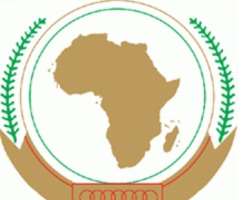The African Union welcomes the signing of the Preliminary Agreement to the Presidential Election and Inclusive Peace Talks in Mali

ADDIS ABABA, Ethiopia, June 19, 2013/African Press Organization (APO)/ -- The Chairperson of the Commission of the African Union (AU), Dr. Nkosazana Dlamini-Zuma, has closely followed the evolution of the negotiation process between the Malian parties, in Ouagadougou, under the aegis of President Blaise Compaore of Burkina Faso, Mediator of the Economic Community of West African States (ECOWAS) in the Malian crisis. The AU High Representative for Mali and the Sahel, who is also the Special Representative and Head of the African-led International Support Mission in Mali (AFISMA), former President Pierre Buyoya, represented the AU in this process, to assist the regional mediation and affirm the support of the AU to the efforts aimed at consolidating the remarkable progress made in the search for a solution to the crisis in Mali, through the restoration of the authority of the Malian State over its entire territory and the completion of the process of return to constitutional order.
The Chairperson of the Commission welcomes the signing this afternoon, in Ouagadougou, of the Preliminary Agreement to the Presidential Election and Inclusive Peace Talks in Mali between, on the one hand, the Transitional Government of National Unity of the Republic of Mali and, on the other, the Coordination of the “National Movement for the Liberation of the Azawad (MNLA)” and the “High Council for the Unity of the Azawad (HCUA)”. This Agreement provides, among others, for the redeployment of the Malian army throughout northern Mali, as demanded by the AU Peace and Security Council (PSC), and the holding of the presidential elections scheduled for July 2013 on the entire Malian territory, including Kidal.
Noting that the most crucial phase of any peace agreement is its implementation, the Chairperson of the Commission urges the Malian parties to honour the commitments they have entered into, with the support of the ECOWAS Mediator and Associate Mediator, President Blaise Compaore and President Goodluck Jonathan of Nigeria, the AU High Representative for Mali and the Sahel and Head of AFISMA, as well as the Special Representative of the Secretary-General of the United Nations in Mali. She also urges them to raise awareness about the provisions of the Agreement and to refrain from any action or statement that could undermine the peace process in Mali. She appeals to all the other Malian armed groups in northern Mali that are not signatories to this Agreement and that have no connections with terrorist and criminal groups, to join and unconditionally commit to all the provisions contained therein.
The Chairperson of the Commission takes this opportunity to pay a well-deserved tribute to Presidents Blaise Compaore and Goodluck Jonathan and to their collaborators, for all the efforts deployed for the success of this process. She expresses appreciation to the members of the international community who have extended support to their efforts.
The Chairperson of the Commission stresses that the success of the Ouagadougou negotiations is a further illustration of the crucial role of the region, through ECOWAS and the neighboring countries, and the continent, through the AU, for the successful conclusion of the ongoing process in Mali, as well as of the importance of a true partnership with the rest of the international community, including the United Nations, as stressed by the PSC in various statements on the situation in Mali.
The Chairperson of the Commission urges ECOWAS and the countries of the region to continue to provide all necessary support to the Malian Government in its efforts and to fully play their role. She reaffirms the AU's commitment to continue to work with the Government and the people of Mali for the completion of the transitional process in their country.
